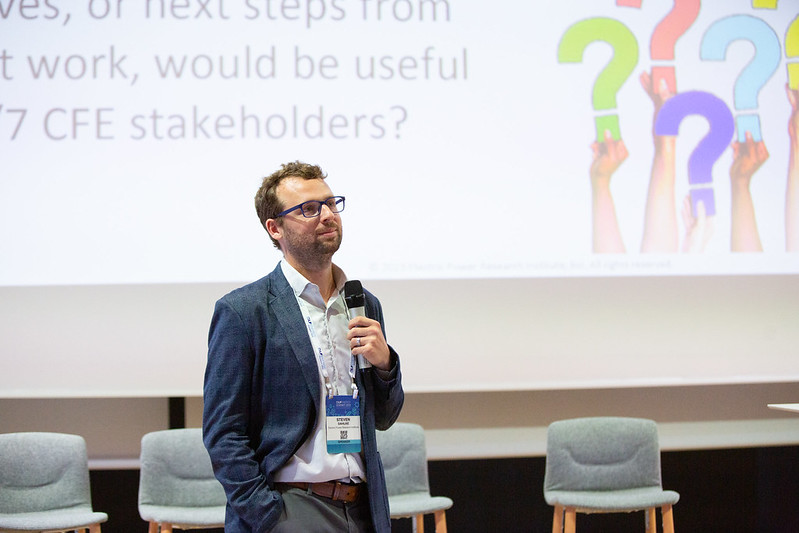LF Energy Summit Recap: Unlocking the Future: 24/7 Carbon-Free Energy Matching Hourly Electric Load With Steve Dahlke of EPRI
LF Energy Summit 2023 included a great session on “24/7 Carbon-Free Energy: Matching Carbon-Free Energy Procurement to Hourly Electric Load,” presented by Steve Dahlke from the Electric Power Research Institute (EPRI). The session (video follows below) delved into the challenges and opportunities of achieving carbon-free energy round the clock. Let’s explore the key insights shared during this enlightening discussion.
Defining 24/7 Carbon-Free Energy (CFE)
Dahlke kicked off his presentation by making a crucial point – there is no universally agreed definition of carbon-free energy. Different consumers have varying preferences when it comes to sources of decarbonized energy supply. While some focus on wind, solar, and battery solutions, others strive for real-time matching of electricity consumption within regional grids. Despite the lack of consensus, the ultimate goal remains clear: achieving carbon-free energy (CFE) round the clock.
Corporate and Government Commitments
Corporations have taken a leading role in renewable energy adoption, with many committing to 100% renewable energy goals. However, the traditional annual accounting approach does not fully account for the variations in renewable energy supply over time. To address this, some forward-thinking consumers have embraced the concept of 24/7 CFE, where they actively match renewable energy supply with their real-time electricity consumption.
Notably, even the federal government of the United States has set ambitious renewable energy goals. The regulatory environment can play a significant role in facilitating or hindering the development of new 24/7 CFE products and deals. Deregulated power markets provide more flexibility for independent power producers to tailor offerings to corporate buyers’ specific needs.
Implementations and Challenges
Globally, around a gigawatt and a half of 24/7 CFE deals have been implemented so far, with major companies like Google and Amazon leading the way. These early adopters are trailblazing the path towards a carbon-free future. Additionally, some local governments have committed to 24/7 CFE goals, signaling the growing importance of sustainability at the regional level.
While progress is evident, the session highlighted several challenges. Developing projects dedicated exclusively to 24/7 CFE can be expensive and complicated due to long interconnection queues. Striking a balance between new projects and leveraging existing low-carbon grids remains a critical concern for achieving efficient decarbonization.
Tracking and Data Management
Ensuring real-time matching of renewable energy supply with electricity consumption requires robust data management and tracking solutions. These software platforms and data companies play a vital role in enabling 24/7 CFE procurement. They establish data pipelines connecting the supply to the consumption centers, allowing utilities to offer baseline tracking for consumers. Open-source and commercial tools are being explored to provide accessible and well-maintained solutions.
The Future of Carbon-Free Energy
The road to a 24/7 carbon-free energy future holds immense potential. As the technology and infrastructure evolve, the adoption of longer-duration storage and dispatchable decarbonized solutions will become essential to address the limitations of current storage technologies. The session sparked a thoughtful discussion about the evolution of the electricity sector, emphasizing the need to continuously innovate and improve.
